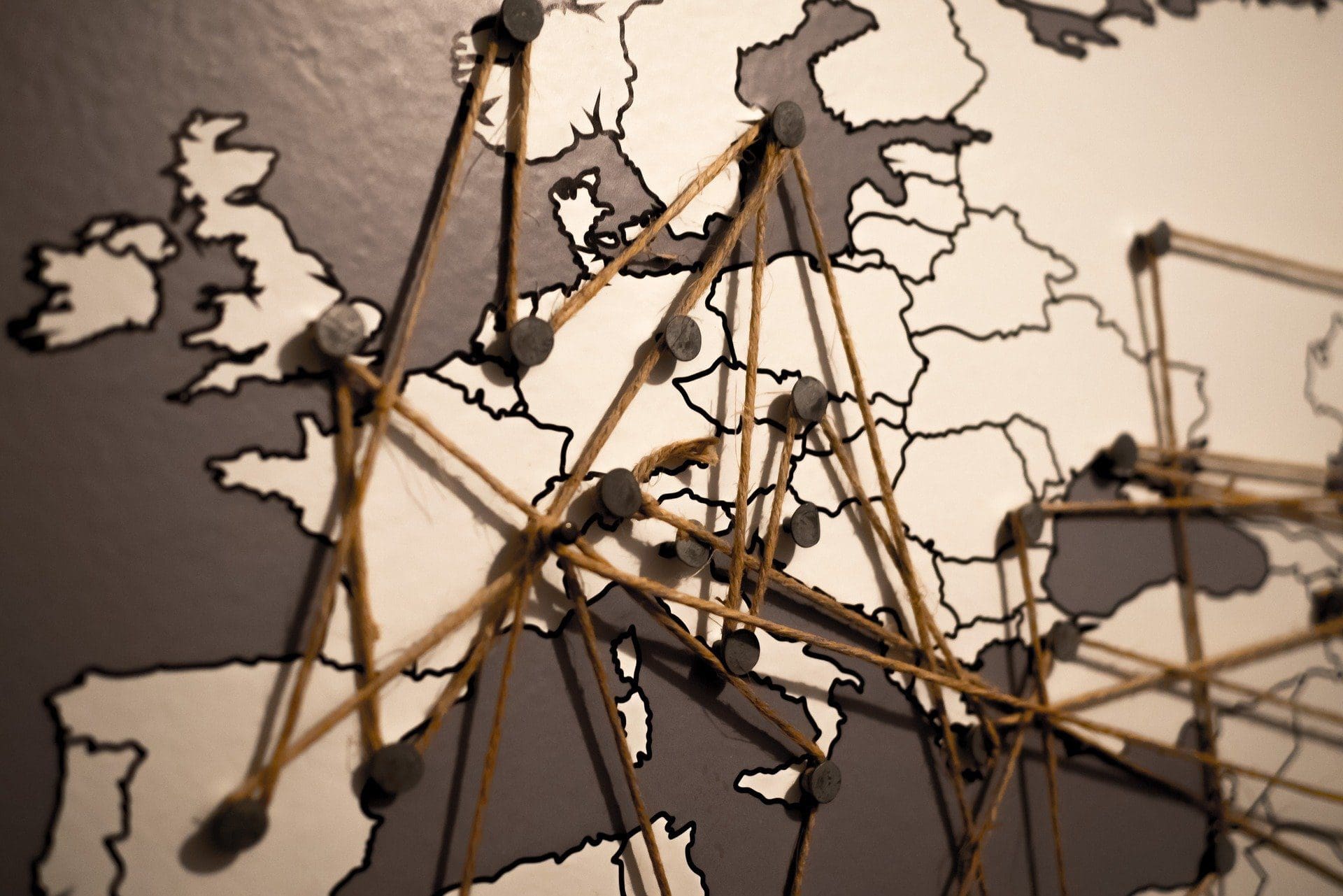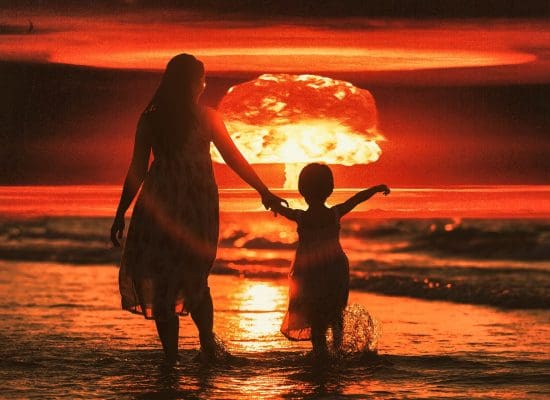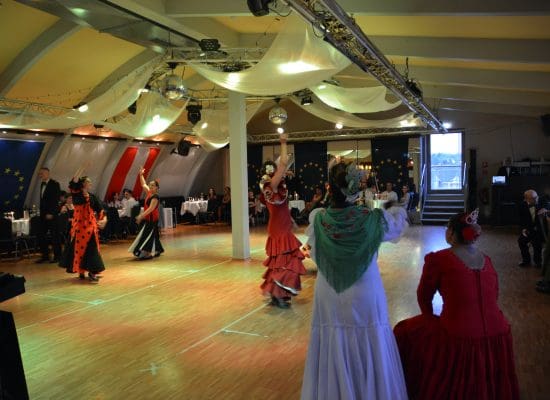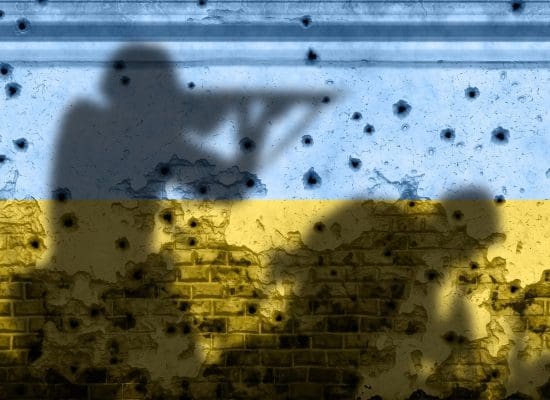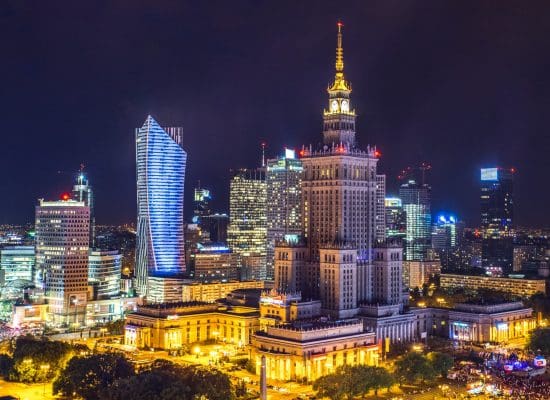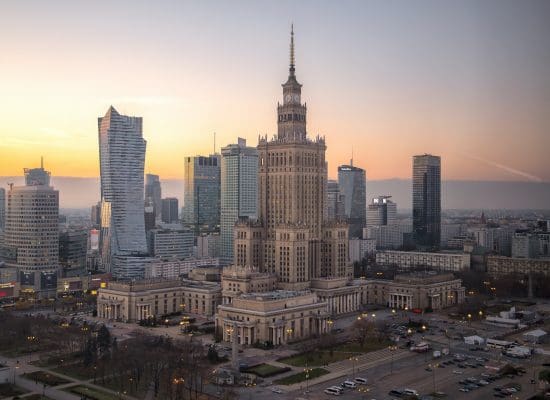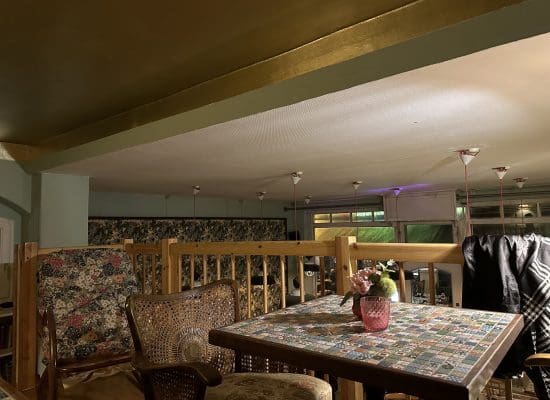Feature photo: Map of Europe with network | © TheAndrasBarta on Pixabay
At this year's New Year's reception District youth officer of the Hohenlohe district, Ms Yasemin Serttürk, and the Forum Jugend I gave a lecture on the topic “Yourope” in the Hohenloher integration center.
The New Year's reception was thanks to the engagement of Mrs Yasemin Serttürk all around a very successful event. I am happy to give interested parties the opportunity to read the lecture again.
“Dear ladies and gentlemen, I am very pleased to be your guest today and to be able to give a lecture at the same time.
The "Forum youth“, which together with Ms Yasemin Serttürk who organizes this New Year's reception for youth work in the Hohenloher integration center, not only gave me a lot of leeway as this year's speaker, but also added the keyword "Yourope’ – in my opinion an extremely well-done play on words – also ensured that my interest in giving today’s lecture to you was immediately aroused.
Under this name was an editorial team from ART been on the road in Europe for seven years to bring the diversity of Europe closer to young viewers in a different way.
And there is still an organization with this name today, which has set itself the goal of networking a wide variety of open-air concerts and festive events for our youth throughout Europe.
The aim of my presentation is to share something with you about our "Yourope’ and the other keywords given to me Youth & Europe, common values & solidarity and political education & democracy to reflect and to give you a few thoughts over the next 20 minutes, which you are welcome to discuss with me afterwards.
I would be very pleased if you would remember my presentation and the discussion that followed and lead to further reflection.
I would like to start with a brief introduction to myself and the civil movement I represent, in order to explain why I am speaking to you here today.
After that, I want to reflect on where we are today as people and citizens of Europe. The next step is to clarify what Europe actually is, in order – last but not least – to raise the question of where we as people actually want to go.
Why am I talking to you?
As a convinced and self-confessed European, I have been chairman of the Heilbronn district association for a good 12 years EUROPA-UNION Germany and thus represent the largest citizens' movement for a Europe united in diversity in the city and district of Heilbronn.
Due to the fact that the district chairman of the EUROPA-UNION Main-Tauber/Hohenlohe, Mr dr Ulrich Derpa, was prevented due to scheduling reasons, I offered my support in the spirit of being a good neighbor. It is with great pleasure that I pass on Mr. Derpa's greetings, combined with best wishes for the New Year, and I join them with all my heart.
Some of you will now be asking yourselves, what is the EUROPA-UNION anyway?
The EUROPA-UNION is the amalgamation of hundreds of local and district associations of European federalists, which have come together as non-profit associations with currently a good 17 members and thus the Union of European Federalists represented in Germany.
The name EUROPA-UNION, which is now only used in Germany, is due to the history of our movement and has nothing to do with the Union parties.
You have certainly heard of many European organizations. “Pulse of Europe” is currently on everyone's lips. There are also the "Friends of Europe", "Loud Europeans", "Europe Clubs" and many other groups that have made Europe their flag. Even we citizens, for whom Europe has been a passion for decades, have long since lost track of things.
That is why it is certainly of interest to you to learn more about the history of the origins of the largest citizens' movement in Europe to experience. There has been evidence for centuries of people who are committed to our Europe and also want to bring about a common Europe. In fact, I claim from the beginning of human history itself.
With the beginning of the success story of the United States of America, the demand for a united Europe became louder and louder and after the First World War, citizens interested in a common Europe began to organize more and more.
The Paneuropa Union was founded in Vienna in 1922 and immediately afterwards the Europa Union in Switzerland in 1923 as its bourgeois counterpart. Both associations were banned in 1933 and their members went into internal emigration, into exile or underground.
During the war, several meetings of representatives of all European resistance movements took place in Switzerland under the auspices of European communists, with representatives of the European federalists also taking part from the start.
These meetings led to the passage of the 1946 Hertenstein program, the policy document of all European federalists that is still valid today.
The European federalists, which from the start world union had in mind and saw a federal European state as fundamental, met with great interest among the citizens of Europe, but had to deal with Churchill's Europeans, who were aiming for a European confederation of states, and de Gaulle's Europeans, who were aiming for a central European state or alternatively strive for a "Europe of fatherlands".
In the course of this dispute, which has continued to this day, most of the European associations merged under the umbrella organization of 1948 European Movement International. It is due to Churchill's skill that neither the French centralists nor the supporters of a federal state have been able to assert themselves to this day.
In a nutshell, what you are looking at is not a representative of a “Europe fan club” but a proponent of a federal state, the future United States of Europe, or whatever the European Union is then called.
Where are we today?
Most of us do not belong to the generation that still carried away barriers in the 50s or took to the streets in thousands with waving European flags – scoffers called them “Churchill’s underpants” at the time – against the national states and for Europe.
We are the generation that was able to harvest the first fruits of a Europe that is growing ever closer together. School exchanges, stays in twin towns or the Interrail ticket are part of our common youth memories.
Our own youth already has the whole world at their feet. You can experience or fly almost an entire continent without a passport or currency exchange - possibilities that our grandparents did not dare to think of in their wildest dreams!
And for us? We only know real poverty from television and perhaps from long-distance travel. Now please don't get me wrong! There are still poor people here too, but starvation is an extremely tragic individual fate in the European Union.
We Europeans die too. Without knowing the exact numbers right now, I would suggest that this is more due to overeating and not enough exercise than to undernutrition or overwork. Traffic accidents kill more people in our country than robberies or disputes.
We Europeans have never lived as safely, comfortably and freely as we do today. Not to mention the opportunities that open up to all of us.
Maybe you only appreciate that when you live in Asia or Africa for a while and see how people have to live from hand to mouth and don't know in the evening how and if they will survive the next day.
War is so long history for most Europeans that some are beginning to contemplate war again as a necessity.
Despite all justified criticism and certainly also very serious shortcomings, we live in an ideal world. And we owe this to the fundamental decisions of convinced Europeans from the years 1945 to 1950: the United Nations, the Universal Declaration of Human Rights, the North Atlantic Treaty Organization (NATO), the Council of Europe, European civil rights, our Basic Law and the European Union as well the Organization for Security and Co-operation in Europe.
Even if these organizations, treaties and laws never achieved their originally intended function or scope, they nevertheless created for us the environment in which we live so well today.
Let me put it even more clearly. Our Federal Republic, the "German economic miracle", the "export world champion" Germany, our prosperity, the reunification of Germany and probably all other achievements and merits of which we are so proud would have existed without the "Western world" and the European unification process never given!
And I also claim that the problems and challenges that we are becoming more and more aware of - let me mention the increasing migration movements in Europe and into Europe as an example - would not exist if we accepted the European idea of world union and the then implemented the fundamental decisions made over the past 70 years instead of continuing to think and act within national boundaries.
What is Europe anyway?
Let's start with what Europe is not. Probably to the chagrin of many geography teachers: Europe is not a continent. And certainly to the chagrin of most students: Everything that is easy is not Europe!
Europe is an idea, the idea of a world union in which all people live peacefully with each other, divided into federal communities that do better justice to the different contexts in which people live.
Europe is a community of values, a community of people and peoples who have developed common values over the past millennia, in which they believe and by which they want to align their lives: peace, freedom, equality, democracy, human rights, subsidiarity and solidarity.
Europe is a community of law, a community in which law, regardless of the level, has the same orienting, integrating and legitimizing effect on everyone. The law is the unifying bond of Europe.
In a nutshell: Europe is work.
For one, continuous persuasion, to the fellow citizens of the “Idea Europe“ to inspire and to make them understandable to the people.
On the other hand, there is still a lot more work to do for ours European values not only to represent and mediate, but also to live. So Europe is educational work, Youth Work, Social work and above all work on yourself, to make yourself a better person in the course of life.
And even more work if you want to do justice to both the law and all citizens. The institutions and bodies required for this are diverse and extensive and a "March through the instances' can take years.
As I said before, Europe is not easy. And if you want to change the world, it is always best to start with yourself.
I am convinced that I will find you here with open ears. Many of us are already living Europe at its best without worrying too much about it - we're rediscovering Europe every day.
Europe is not Utopia! Europe is one permanent and perpetual construction site.
We'll probably never get through with it. And what is special, if not downright lovable, about the Europe construction site is that some are already building the roof while others are still working on the foundations or the basement. Others are already tearing down the garages because they no longer consider them appropriate. And we European federalists wonder every day why our rose beds around the house are trampled over and over again.
Nor is Europe the Tower of Babel, which provoked the displeasure of God and, as a result, failed because of the multiplicity of languages.
Europe is building on this diversity and if it fails, then Europe will fail because of us humans! To us humans when we speak up for separation, discrimination, exclusion, envy, intolerance and other disgusting human characteristics instead of to embrace our fellow human beings and to try to make our one world and thus ourselves better together for the benefit of all!
Therefore, at the end of my presentation, allow me to raise the following question:
Where do we want to go?
Do we want a better world? Then we are already on the right track with Europe!
But this better world does not come for free! And our Europe is only the smaller part of it. In a few years, we Europeans will no longer be 5% of the world's population; with a population that will soon exceed 10 billion people. And today, in the eyes of a Chinese, Germany is just a rounding error in terms of population.
Without significant technological progress and a sustainable use of the available resources, humanity will have to take the oath of disclosure in the foreseeable future.
By then at the latest, the last of us will have to realize that Europe also not an island at a hunt.
Therefore, let us continue along the path that we trod more than 70 years ago. Let's finally put the "little-small" of national approaches to the files. And let's put together a gear towards Europe.
I know it's work, a lot of work. It costs sweat and will also – whether we want it or not – involve sacrifices.
Ladies and gentlemen, "Yourope“ – the keyword of today’s lecture – we are all! Let's get back to work on the construction site Europe! I believe that a New Year's reception is the right occasion for this.
Thank you for your attention and I am now at your disposal for your questions and comments.”
"Bien entendu, on peut sauter sur sa chaise comme un cabri en disant l'Europe! l'Europe! l'Europe! mais cela n'aboutit à rien et cela ne signifie rien."
Charles de Gaulle, in an interview with Michel Droit (December 14, 1965)
